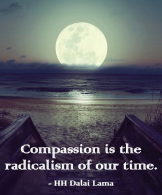If you can talk you can sing, if you can walk you can dance. Zimbabwe proverb
Listening to a recording of Chief Seattle’s speech in an English Language Arts classroom, I was hit by his descriptions of the European colonizers’ blindness to the values and ways of life they were destroying.
Later that day when teachers related the latest examples of how the once carefully developed culture of that school is being crushed, the images from Chief Seattle’s speech came back to me. The school is taken over by people whose focus is on measurable data and behavior control; they don’t see what their priorities are squeezing out of the life of that building where students grew up to care and live in the world.
My friend Edna, who is Haida and Cree, says, “We are all Indians now.” Schools have been colonized.
Not for the first time, I look back at other historical struggles for insight.I turned to this excerpt from Tony Bender’s powerful novel, The Last Ghost Dancer (Thomas Dunne Books/St. Martin’s Press. New York 2010) to help me think
“Wovoka believed the Ghost Dance would bring this Purification sooner. For the sick and starving Lakota at Wounded Knee, it was a message of hope. Many embraced it. So the Ghost Dance swept into the prairies. But it began to frighten the whites, and they tried to put a stop to it. This unrest is what led to the death of Sitting Bull and the massacre of so many at Wounded Knee.
“I don’t understand. Why would it frighten the whites?”
“Like all religion, it got distorted. There were those who did not embrace Wovoka’s commandment that they must not fight the whites. A few began to believe they should take it upon themselves to punish the whites. Such is the arrogance of man. He begins to believe that he must do God’s work for Him.”
“But what frightened the whites most was that the Ghost Dance brought the people hope. A people with hope are a formidable people. You must understand. The whites sought order and assimilation. The missionaries came in and began to wipe out the old beliefs on the reservations. They were certain they were doing God’s work.”
“The reality is that there are many pieces of the truth. It is better for us to search for the pieces and to assemble them. But when a fragment of the truth is shoved forward as the whole truth, there is arrogance in that. Any belief that one fragment is superior to another will cause anger. There is anger for those who are subjugated. And when they rise up, there is anger from oppressors because they cannot accept the challenge to their particular truth. If anger and violence grow from a belief, you can be certain it is flawed. So it was at Wounded Knee.” Joe Big Cloud to the narrator, a young man in South Dakota


Karma coming around! Beautifully expressed.